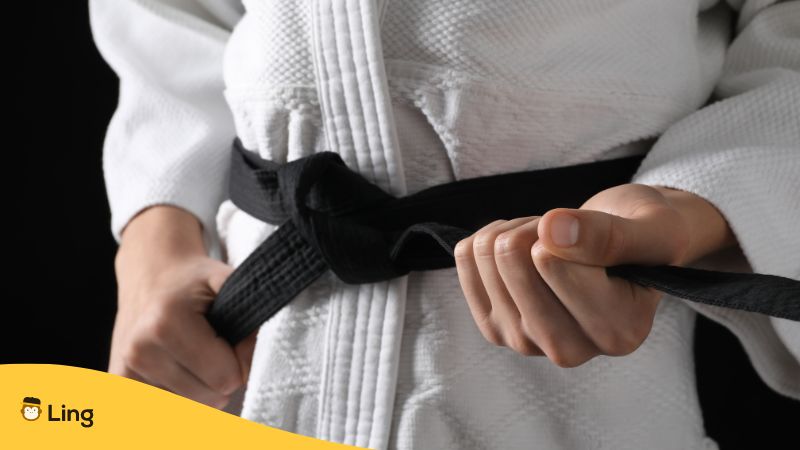Ever feel like you’re stuck in a rut with all the formal language you’ve been learning? Well, good news! We’re here to shake things up in this blog article by introducing you to some incredible casual words and phrases that make you sound Japanese!
You might not find these gems in your standard Japanese lessons, but trust us; they’re a big part of conversational Japanese. Once you’ve got these words and phrases down, go ahead and sprinkle them into your next chat with a Japanese friend or language partner – you’ll be amazed at how much more natural and fun your conversations become. Enjoy!
Japanese Words That Make You Sound Local
While you may know that “arigatou gozaimasu” (ありがとうございます) is the formal way to express gratitude, what you didn’t realize is that there are many cool Japanese words that you can use instead! (Here’s a freebie: you can use サンキュー!)
Coming up is a list of some cool Japanese words and phrases that you can use during your trip to Japan, your everyday lessons, or just as a reference when watching your favorite Japanese shows.

Ossu (おっす)
When learning basic Japanese phrases, you’ll definitely come across ohayou gozaimasu (おはようございます) at some point. But if you want to speak as the Japanese people do, you’ll have to learn some slang words – like ossu (おっす)!
So, “ossu” (おっす) is like a cool, shortened version of “ohayou gozaimasu” (おはようございます), which means “Good morning.” But guess what? You can use “ossu” to greet your buddies or fam in the Japanese language at any time of the day – it’s just like saying “Hey!” or “Yo.”
Now, here’s a fun fact: “ossu” sounds a lot like osu (押忍), which in the world of martial arts, means “restraining oneself and standing.” So, it’s also used as an official salutation when martial artists throw down in the ring. Neat, huh?
Yo (よー)
Another casual way to use Japanese words to greet someone is to use “yo” (よー). While not the type of greeting you’d hear in polite Japanese conversations, よー serves as a more relaxed way to say hi to someone in Japan.
However, note that you should only use this word to greet someone when you’re sure you have a close relationship with them. よー is part greeting, part friendly insult, which means it’s cordial if used on a friend, but rude if used on a stranger.
Chōshi Dō? (調子どう?)
Chōshi dō? (調子どう?) is an example of Japanese slang words that may be used informally. It directly translates to “How’s it goin’?” and is considered a cool but informal way to greet someone in Japan.
Another cool and casual way to ask someone how they’re doing in Japanese: おげんき? It’s a shorter, more relaxed way to say o genki desu ka? (お元気ですか?), which means “How are you?” Give it a try next time you’re chatting with your Japanese pals!

Kimi Wa Hontou Ni Ii Yatsu Da Na (君は本当にいいヤツだな)
Picture this: you’re having a fantastic night out in Shinjuku, and you meet a bunch of cool guys you totally click with. Why not let them know how much you enjoy their company in the new language you just learned? Just say: kimi wa hontou ni ii yatsu da na! (君は本当にいいやつだな)
This fun Japanese phrase means, “You’re a really good guy, aren’t you?” and is perfect for showing your appreciation to your new pals. Just a quick heads-up, though – the word “yatsu” (やつ) is only used for boys, not girls! Using this phrase on people you meet in Japan will give them the impression that you speak Japanese quite well!
Konya Wa Ie De Gorogoro Shiteru Yo (今夜は家でゴロゴロしてるよ)
The Japanese language uses much onomatopoeia in everyday conversation, and this is one of the Japanese phrases we’ll learn today with such an example. This phrase directly translates to “I’m going to roll around at home.” The slang phrase means, “I’m going to just space out at home.”
Gorogoro (ゴロゴロ) is an example of a Japanese phrase based on the sound the action makes. Japanese was once considered a vague language, and ゴロゴロ is one of the Japanese words that filled the void for actions people can’t quite describe.

Yabai (ヤバい)
Yabai (ヤバい) is one of the more interesting Japanese words that many people coming to Tokyo for the first time might hear while eating at a great restaurant. You might even hear it said among friends having fun!
In the past, ヤバい was used as the word for “danger.” Over time, the word has evolved to be used as a term to mean “uncool.” In modern days, however, ヤバい has become more of a word that is used as a positive exclamation about something people like – whether it’s cool, funny, or just plain fun!
Of course, like all languages, its use is contextual. ヤバい can be used to express excitement and happiness but also fear and danger. The closest possible equivalent of ヤバい in English is “sick” – some people use the word “sick” to refer to something they think is pretty awesome but also to something they find quite abhorrent.
Chou (超)
This cool Japanese word, “chou” 超, can be used with “meccha” (めっちゃ) to mean “very”? Instead of using the more formal “totemo” (とても) or “sugoi” (すごい), you can go casual with these slang words!
They’re pretty much like saying “totally,” “super,” or “so” in English. So give it a try when you’re chatting in Japanese and want to share how much you like something or how extreme something is – it’s a fun way to spice up your conversations!

Mendoi (めんどい)
Life got you down? Unwilling to do what seems like a troublesome task? This phrase is a fun way to say that you think something is a hassle but in Japanese! “Mendoi” (めんどい) is the shortened form of “mendokusai” (面倒臭い), which means “troublesome” or “annoying.” You won’t be out of place if you say this in the middle of Tokyo!
There’s this interesting theory in Japanese culture about where the word came from. It’s said to have started as “medauna” (めだうな), which is made up of “me” (目), meaning “eye,” and “dauna” (だうな), meaning “wasted.” So, it meant “waste of your eyes” or “not worth looking at.”
Over time, people started using it to describe stuff that looked bad or just plain ugly. And guess what? That’s how it eventually evolved into the “annoying” and “troublesome” meaning we use today!
Naruhodo (なるほど)
When you use this while learning Japanese, your sensei (先生) will likely compliment you on how many new words you’re learning! “Naruhodo” (なるほど) is a Japanese phrase that translates to “I see” or “That’s right,” typically used during lightbulb moments in life when something clicks in your head.
Of course, this is the informal form of saying that you understood something. The formal form, for reference, is “wakarimashita” (わかりました). Another more formal way to say it is “benkyou ni narimashta“ (勉強になりました), which translates to “I have learned something new.”

Majide (マジで)
This phrase will be there for you when you hear something so incredulous and untrue! Majide (マジで) comes from majime (真面目), which means “serious” in Japanese. When you wanna say “seriously” or “really,” just use maji (マジ)!
There are two ways you can use it: maji (マジ) or majide (マジで). You can use them before a phrase you wanna emphasize, or just on their own to express your surprise or disbelief, like saying, “Seriously!?”
Here’s a quick example: let’s say your friend just told you they won a trip to Hawaii. You could respond with “マジで?! ハワイに行くなんて!” In Romaji, that’s “Maji de?! Hawaii ni iku nante!” which means “Seriously?! Going to Hawaii, of all places!”
Learn Phrases That Make You Sound Japanese With Ling
Of course, you will need more than just learning these phrases in Japan – especially if you want to immerse yourself in the culture completely. If you want to start learning Japanese quickly and in a digestible manner, we have something for you: Ling!
Ling is the best way to take your Japanese skills from beginner to expert in no time. You can choose from up to 60 languages from all over the world, giving you the freedom to pursue the language you’ve always wanted to learn. And the best part? The app is available for FREE! Get started on your Japanese lessons today by downloading the Ling app for Android or iPhone today!










